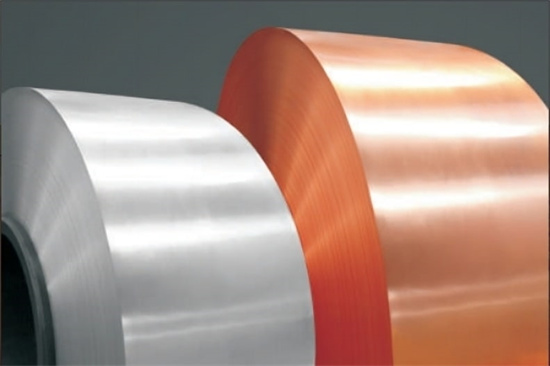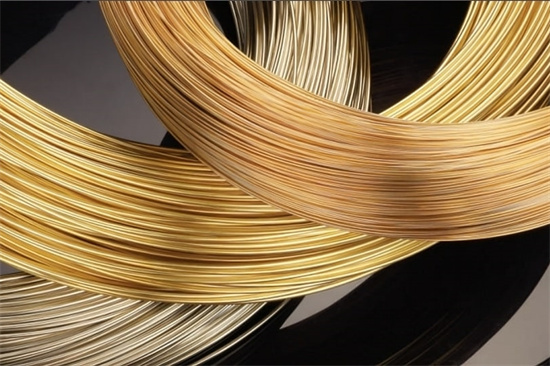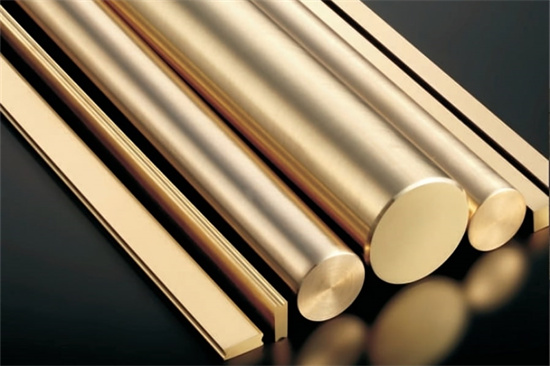


CuZr: The Perfect Copper Alloy for Demanding Applications
Low MOQ
Provide low minimum order quantity to meet different needs.
OEM & ODM
Provide customized products and design services to meet unique customer needs.
Adequate Stock
Ensure fast order processing and provide reliable and efficient service.
Customer Satisfaction
Provide high quality products with customer satisfaction at the core.
share this article
Table of Contents
In the world of copper alloys, few materials boast the versatility and strength of CuZr—a combination of copper (Cu) and zirconium (Zr). If you’re in search of a material that balances conductivity, thermal stability, and mechanical strength, then CuZr might be the ideal choice for your next engineering or manufacturing project.
In this comprehensive guide, we’ll explore everything you need to know about CuZr—from its composition and properties to its various applications, specifications, and pricing. This article is designed to provide a detailed, yet conversational, look at CuZr, helping you understand why this alloy is used across a wide range of industries.
So whether you’re an engineer, manufacturer, or just someone curious about the incredible properties of CuZr, you’re in the right place!
Overview
CuZr, or Copper Zirconium Alloy, is a precipitation-hardened copper alloy that typically contains 0.1% to 0.15% zirconium. This small amount of zirconium transforms the properties of copper, enhancing its strength, thermal stability, and corrosion resistance. The result is an alloy that maintains much of copper’s excellent electrical conductivity while adding the durability and performance needed for high-stress or high-temperature environments.
Key Characteristics
- High Strength: The addition of zirconium significantly increases the alloy’s mechanical strength.
- Good Electrical Conductivity: Although slightly lower than pure copper, CuZr still retains excellent electrical properties.
- Thermal Stability: CuZr performs well under high temperatures, making it ideal for heat exchangers and welding electrodes.
- Corrosion Resistance: The alloy is resistant to oxidation and various forms of corrosion.
- Wear Resistance: CuZr demonstrates strong resistance to wear, particularly in high-load mechanical applications.
Composition and Properties
To better understand CuZr, let’s dive into its composition and key mechanical properties. These factors are crucial for engineers and designers when selecting materials for high-performance applications.
Composition
The composition of CuZr is engineered to optimize its performance in terms of strength, durability, and conductivity. Here is a typical breakdown of its chemical makeup:
| Element | Percentage (%) |
|---|---|
| Copper (Cu) | 99.85 – 99.90 |
| Zirconium (Zr) | 0.10 – 0.15 |
- Copper (Cu): The primary element, providing high conductivity and ductility.
- Zirconium (Zr): A small yet critical addition, enhancing the alloy’s strength, thermal stability, and wear resistance.
Mechanical and Physical Properties
Here’s a look at the key mechanical and physical properties of CuZr, which make it a go-to material for many demanding applications:
| Property | Typical Value |
|---|---|
| Tensile Strength | 450 – 550 MPa |
| Yield Strength | 350 – 450 MPa |
| Elongation | 15 – 25% |
| Hardness | 120 – 150 HB |
| Electrical Conductivity | 80 – 90% IACS |
| Thermal Conductivity | 320 – 360 W/mK |
| Density | 8.9 g/cm³ |
| Fatigue Resistance | High |
| Melting Point | 1083°C |
Why These Properties Matter
- Tensile and Yield Strength: These properties allow CuZr to withstand high mechanical loads, making it suitable for welding electrodes and high-stress components.
- Electrical Conductivity: With 80-90% IACS, CuZr is still an excellent conductor, though slightly reduced compared to pure copper, allowing it to remain effective in electrical applications.
- Thermal Conductivity: High thermal conductivity ensures efficient heat dissipation, a vital feature in power electronics and heat exchangers.
- Fatigue Resistance: The alloy’s ability to endure repeated stress cycles makes it ideal for components used in mechanical systems that experience cyclic loading.
Applications: Where and How It’s Used
Thanks to its strength, thermal stability, and wear resistance, CuZr is widely used across various industries, from automotive to electronics. Below, we’ve outlined some of the most common applications of CuZr.
Common Applications
| Industry | Applications |
|---|---|
| Welding | Welding electrodes, resistance welding parts |
| Automotive | Heat exchangers, connectors, electrical terminals |
| Power Generation | Switchgear, circuit breakers, electrical contacts |
| Electronics | High-performance connectors, semiconductor devices |
| Aerospace | Heat-resistant components, high-load bearings |
| Industrial Equipment | Molds, tooling, high-temperature furnaces |
Why CuZr Is Preferred in These Applications
- Welding: The combination of strength and excellent heat dissipation makes CuZr the preferred choice for welding electrodes and resistance welding parts.
- Automotive: In automotive applications, CuZr’s ability to withstand high temperatures and mechanical stress makes it perfect for heat exchangers, connectors, and electrical terminals.
- Power Generation: Its thermal stability and electrical conductivity make it ideal for switchgear, circuit breakers, and electrical contacts—all critical components in power generation.
- Electronics: For high-performance electronics, it is often used in connectors and semiconductor devices where thermal management and strength are essential.
- Aerospace: In aerospace applications, CuZr is used in heat-resistant components and bearings that need to perform under high stress and elevated temperatures.
Specifications, Sizes, and Grades
When selecting CuZr for your project, it’s important to choose the right size, grade, and specifications to match your application’s needs. Let’s take a look at the available forms and grades of CuZr.
Specifications and Sizes
| Specification | Details |
|---|---|
| Form | Rods, plates, wires, strips |
| Diameter Range (Rods) | 1 mm to 150 mm |
| Thickness Range (Plates) | 0.5 mm to 50 mm |
| Temper | Annealed, cold-worked, hardened |
| Standards | ASTM B224, EN 13601, DIN 17666 |
Grades
| Grade | Characteristics |
|---|---|
| CuZr-Soft (Annealed) | High ductility, used for forming applications |
| CuZr-Hard (Cold-Worked) | Increased strength, ideal for high-load components |
| CuZr-Extra Hard | Maximum strength, used in wear-intensive applications |
Choosing the Right Grade
The form and grade of CuZr you select can have a significant impact on its performance and cost. For instance, annealed it is easier to work with and form into complex shapes, while cold-worked CuZr offers superior strength for high-load applications.
Suppliers and Pricing
When sourcing CuZr, it’s essential to choose reputable suppliers who can provide the right grade and form for your needs. Below, we’ve listed some prominent suppliers and provided estimated pricing to help you get a better sense of the market.
Suppliers and Pricing Details
| Supplier | Location | Price Range (per kg) | Delivery Time |
|---|---|---|---|
| Metal Supermarkets | USA | $20 – $35 | 1-2 weeks |
| EuroAlloys | Europe | €18 – €32 | 2-3 weeks |
| AsiaMet | China | $15 – $30 | 2-4 weeks |
| GlobalMetal Supply | India | $16 – $29 | 2-4 weeks |
| CopperTech Ltd. | UK | £18 – £33 | 1-2 weeks |
Factors Influencing CuZr Pricing
- Form: The cost of rods, plates, and wires can vary significantly based on the processing required.
- Grade: Higher-strength grades, such as cold-worked CuZr, tend to be more expensive due to additional heat treatment or work hardening.
- Quantity: Bulk orders can often result in lower per-unit prices.
- Global Demand: Fluctuations in demand from industries like electronics and automotive can impact the price of CuZr.
Advantages and Limitations
Like any material,it has its advantages and limitations. Knowing these can help you determine whether it’s the right choice for your application.
Advantages and Limitations
| Advantages | Limitations |
|---|---|
| Excellent balance of strength and conductivity | Slightly more expensive than pure copper |
| High thermal stability | Lower conductivity than pure copper |
| Good wear resistance | Requires precise heat treatment for best results |
| Corrosion resistant | Limited availability in certain markets |
| Fatigue resistant | Not as common as other copper alloys |
Is CuZr the Right Material for You?
It is an excellent choice if you need a material that can handle high temperatures, mechanical stress, and electrical loads. However, if cost or availability is a concern, you may want to consider other copper alloys like CuCr1Zr or pure copper, depending on your specific needs.
CuZr vs. Other Copper Alloys: A Comparison
When choosing a copper alloy, it’s essential to compare CuZr with other options to ensure you’re getting the most suitable material. Below, we’ll compare CuZr to other common copper alloys like CuCr1Zr and pure copper.
CuZr vs. CuCr1Zr vs. Pure Copper
| Property | CuZr | CuCr1Zr | Pure Copper |
|---|---|---|---|
| Tensile Strength | 450 – 550 MPa | 400 – 500 MPa | 200 – 250 MPa |
| Yield Strength | 350 – 450 MPa | 350 – 450 MPa | 50 – 100 MPa |
| Electrical Conductivity | 80 – 90% IACS | 70 – 85% IACS | 100% IACS |
| Thermal Conductivity | 320 – 360 W/mK | 300 – 350 W/mK | 390 – 400 W/mK |
| Wear Resistance | High | Moderate | Low |
| Cost | Moderate | Moderate | Low |
| Applications | Welding, electronics, automotive | Aerospace, automotive, power | Electrical wiring, heat sinks |
Key Takeaways from the Comparison
- It offers a better balance of strength and electrical conductivity compared to CuCr1Zr, making it ideal for welding and high-stress applications.
- CuCr1Zr has slightly better thermal stability, making it more suitable for aerospace and power generation applications.
- Pure copper excels in electrical conductivity but lacks the strength and wear resistance needed for demanding mechanical applications.
Frequently Asked Questions (FAQ)
Here are some common questions about CuZr, designed to help you quickly find the information you need.
| Question | Answer |
|---|---|
| What is it used for? | It is commonly used in welding electrodes, heat exchangers, connectors, and circuit breakers. |
| How much does it cost? | It typically costs between $15 and $35 per kg, depending on the form and supplier. |
| Is it corrosion resistant? | Yes,it offers good resistance to oxidation and corrosion, especially in high-temperature environments. |
| Can it be used in high-temperature applications? | Yes, it maintains its properties at elevated temperatures, making it suitable for heat exchangers and furnace components. |
| What is the difference between CuZr and CuCr1Zr? | It contains zirconium, while CuCr1Zr contains both chromium and zirconium, giving CuCr1Zr slightly better thermal stability. |
| Is it easy to machine? | It can be machined, though hardened grades may require specialized tools for optimal results. |
Conclusion
It is a unique copper alloy that provides an excellent balance of strength, thermal stability, and electrical conductivity. Whether you’re working in welding, automotive, electronics, or power generation, it can handle the most demanding environments with ease.
While it may not be the cheapest material, its long-term durability, wear resistance, and ability to perform at high temperatures make it a solid investment for projects where performance and reliability are crucial. If you’re looking for a material that combines the strength of an alloy with the conductivity of copper, it should definitely be on your radar.
In summary, it is a high-performance copper alloy that shines in high-stress, high-temperature environments, offering the best of both worlds in terms of mechanical strength and electrical conductivity.
Maybe you want to know more about our products, please contact us
Get Latest Price
About Met3DP
Product Category
HOT SALE
CONTACT US
Any questions? Send us message now! We’ll serve your request with a whole team after receiving your message.

Metal Powders for 3D Printing and Additive Manufacturing
COMPANY
PRODUCT
cONTACT INFO
- Qingdao City, Shandong, China
- [email protected]
- [email protected]
- +86 19116340731








